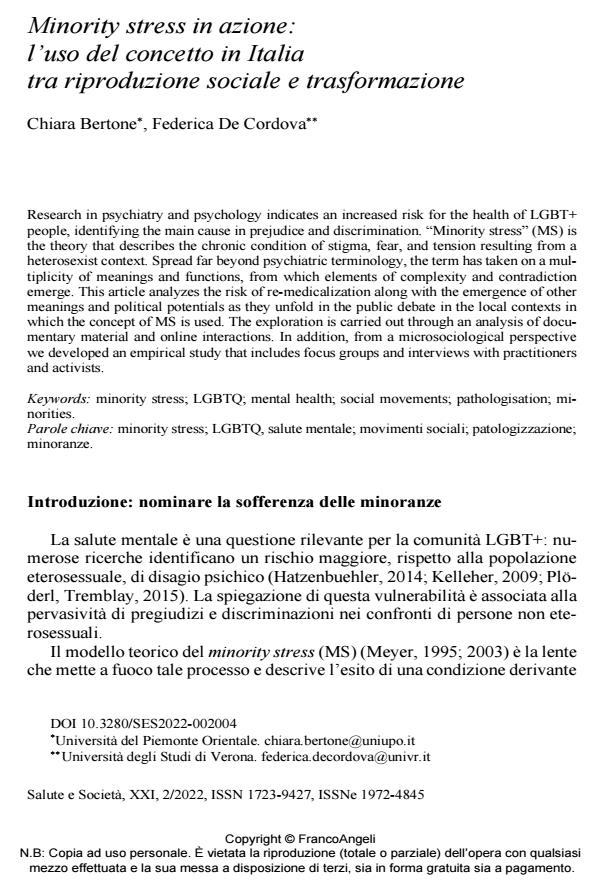Minority stress in azione: l’uso del concetto in Italia tra riproduzione sociale e trasformazione
Journal title SALUTE E SOCIETÀ
Author/s Chiara Bertone, Federica de Cordova
Publishing Year 2022 Issue 2022/2
Language Italian Pages 14 P. 36-49 File size 89 KB
DOI 10.3280/SES2022-002004
DOI is like a bar code for intellectual property: to have more infomation
click here
Below, you can see the article first page
If you want to buy this article in PDF format, you can do it, following the instructions to buy download credits

FrancoAngeli is member of Publishers International Linking Association, Inc (PILA), a not-for-profit association which run the CrossRef service enabling links to and from online scholarly content.
Research in psychiatry and psychology indicates an increased risk for the health of LGBT+ people, identifying the main cause in prejudice and discrimination. "Minority stress" (MS) is the theory that describes the chronic condition of stigma, fear, and tension resulting from a heterosexist context. Spread far beyond psychiatric terminology, the term has taken on a mul-tiplicity of meanings and functions, from which elements of complexity and contradiction emerge. This article analyzes the risk of re-medicalization along with the emergence of other meanings and political potentials as they unfold in the public debate in the local contexts in which the concept of MS is used. The exploration is carried out through an analysis of documentary material and online interactions. In addition, from a microsociological perspective we developed an empirical study that includes focus groups and interviews with practitioners and activists.
Keywords: minority stress; LGBTQ; mental health; social movements; pathologisation; minorities.
Chiara Bertone, Federica de Cordova, Minority stress in azione: l’uso del concetto in Italia tra riproduzione sociale e trasformazione in "SALUTE E SOCIETÀ" 2/2022, pp 36-49, DOI: 10.3280/SES2022-002004